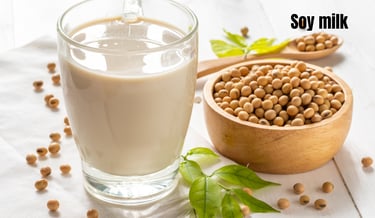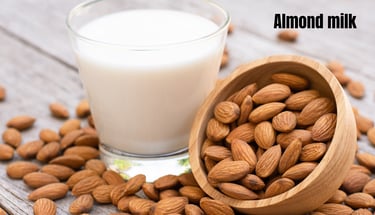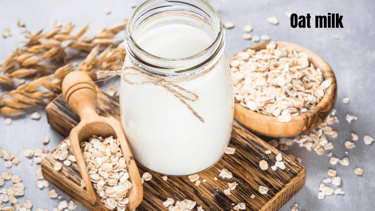The Rise of Fortified Plant-Based Milks: Nutritional Benefits and Lifestyle Impact
The growing popularity of fortified plant-based milks signifies a pivotal shift in consumer preferences towards more sustainable and health-conscious dietary choices. These beverages, enriched with essential vitamins and minerals, offer nutritional benefits that can rival or even surpass traditional dairy milk. Key nutrients such as calcium, vitamin D, and B12 are often added to these plant-based alternatives, addressing common deficiencies and supporting overall health and well-being.
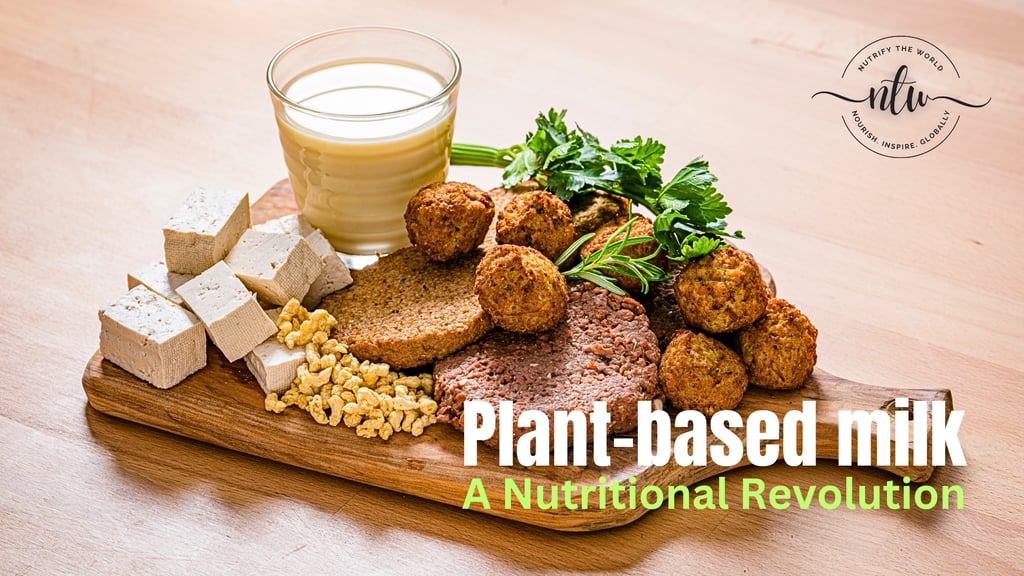

Introduction to Plant-Based Milks
The landscape of the beverage industry has experienced a notable shift with the rise in popularity of plant-based milks. This surge is driven by several factors, including increased health awareness, environmental sustainability concerns, and evolving dietary preferences. Plant-based milks such as soy milk, almond milk, and oat milk have emerged as popular alternatives to traditional dairy milk, catering to a broader range of consumer needs and preferences.
Health consciousness has played a significant role in the adoption of plant-based milks. Many consumers are seeking options that align with their nutritional goals, whether it's reducing cholesterol intake, increasing vitamin and mineral consumption, or avoiding lactose due to intolerance. Plant-based milks often come fortified with essential nutrients like calcium, vitamin D, and vitamin B12, making them not only a viable alternative but also a nutritionally competitive option compared to dairy milk.
In addition to health benefits, sustainability concerns are another driving force behind the growing demand for plant-based milks. The environmental impact of dairy farming, including high greenhouse gas emissions, water usage, and land degradation, has led many to seek more sustainable alternatives. Plant-based milks typically have a smaller environmental footprint, using fewer resources and generating lower emissions. This eco-friendly aspect appeals to environmentally conscious consumers looking to reduce their carbon footprint.
Furthermore, the increasing diversity in dietary preferences has contributed to the popularity of plant-based milks. Whether due to ethical reasons, such as animal welfare, or personal dietary choices like veganism and vegetarianism, many individuals are opting for non-dairy alternatives. The availability of various plant-based milks allows consumers to choose a product that aligns with their values and dietary restrictions, without compromising on taste or nutritional value.
As we delve deeper into the topic, it becomes evident that the rise of fortified plant-based milks is more than a passing trend. It reflects a broader shift towards healthier, more sustainable, and inclusive food and beverage choices. This introduction sets the stage for a comprehensive exploration of the nutritional benefits and lifestyle impacts of this significant change in consumer behavior.
Nutritional Benefits of Plant-Based Milks
As the popularity of plant-based diets continues to grow, so does the consumption of plant-based milks. These alternatives to traditional cow's milk, such as soy milk, almond milk, and oat milk, offer a variety of nutritional benefits. One of the most notable advantages is their generally lower calorie content. For instance, unsweetened almond milk typically contains around 30-50 calories per cup, compared to the 150 calories found in a cup of whole cow's milk.
Additionally, plant-based milks are often lower in fat. Almond milk and oat milk usually have less than 3 grams of fat per serving, whereas whole cow's milk contains about 8 grams of fat per cup. This makes plant-based milks a suitable option for those looking to reduce their fat intake. Furthermore, these alternatives are naturally lactose-free, providing a viable option for individuals with lactose intolerance.
Beyond these basic nutritional benefits, fortified plant-based milks offer enhanced nutritional profiles. Many brands fortify their products with essential vitamins and minerals, making them comparable to or even superior to cow's milk in some aspects. For example, fortified soy milk can provide up to 50% of the daily recommended intake of vitamin B12, an essential nutrient often lacking in plant-based diets. Similarly, fortified almond and oat milks are excellent sources of calcium and vitamin D, both crucial for bone health.
These fortified versions can also help fill other nutritional gaps. Vitamin B12, calcium, and vitamin D are critical for various bodily functions, including maintaining healthy nerve cells, bone density, and immune system support. The addition of these nutrients makes fortified plant-based milks a comprehensive dietary option, particularly for those who may not get enough of these vitamins and minerals from their regular diet.
In summary, the nutritional benefits of plant-based milks extend beyond just being lower in calories and fat. The absence of lactose and the fortification with essential vitamins and minerals make them a nutritionally robust alternative to traditional cow's milk. Whether for dietary preferences, lactose intolerance, or nutritional enhancement, fortified plant-based milks offer a versatile and beneficial option for modern consumers.
Fortification of Plant-Based Milks: What It Means and Why It Matters
Fortification is a critical process that enhances the nutritional profile of plant-based milks, making them a viable alternative to traditional dairy products. Fortification involves adding essential vitamins and minerals that may be naturally lacking in these beverages. This process aims to address nutritional gaps and ensure that consumers receive key nutrients necessary for maintaining a balanced diet.
Common nutrients added during the fortification of plant-based milks include vitamin B12, calcium, and vitamin D. Vitamin B12 is particularly important for vegans, as it is primarily found in animal-based products. A deficiency in vitamin B12 can lead to anemia and neurological issues. Calcium is another vital nutrient, essential for maintaining strong bones and teeth. While some plant-based milks naturally contain calcium, fortification ensures that the levels are sufficient to meet daily dietary requirements. Vitamin D, often referred to as the "sunshine vitamin," aids in calcium absorption and bone health. It is especially crucial during the winter months when sun exposure is limited.
The reasons for fortifying plant-based milks extend beyond merely mimicking the nutritional content of cow's milk. For individuals with dietary restrictions or allergies, fortified plant-based milks offer a nutritious alternative without compromising their health needs. For example, those who are lactose intolerant or have a milk allergy can benefit from these fortified alternatives. Additionally, for vegans who abstain from all animal products, fortified plant-based milks provide a reliable source of essential nutrients that might otherwise be difficult to obtain.
Health benefits of consuming fortified plant-based milks are substantial. These beverages not only support bone health through added calcium and vitamin D but also contribute to overall well-being with the inclusion of vitamin B12. By choosing fortified options, individuals can meet their nutritional needs more efficiently, supporting a healthy lifestyle while adhering to their dietary preferences.
Impact on Health and Lifestyle
The incorporation of fortified plant-based milks into daily diets presents a multitude of health and lifestyle benefits. These alternative milks are often enriched with essential nutrients such as calcium, vitamin D, and B12, which are crucial for maintaining bone health and overall well-being. For individuals who are lactose intolerant or allergic to dairy, fortified plant-based milks provide a valuable source of nutrition without the associated digestive discomfort. Moreover, these milks cater to vegans and those seeking to reduce animal product consumption, aligning with ethical and environmental values.
From a dietary perspective, fortified plant-based milks can support a balanced diet by offering diverse nutrient profiles. Almond milk, for instance, is lower in calories and rich in vitamin E, while soy milk provides a robust protein content comparable to cow’s milk. Oat milk, another popular option, is high in fiber, aiding digestion and promoting a feeling of satiety. By choosing the suitable plant-based milk, individuals can tailor their nutrient intake to meet specific health requirements and dietary goals.
Beyond individual health benefits, the adoption of fortified plant-based milks also contributes to sustainable living. The production of plant-based milks generally requires fewer resources and generates less greenhouse gas emissions compared to traditional dairy farming. This shift not only helps reduce environmental impact but also supports the growing movement towards more sustainable food systems.
Personal stories further illustrate the positive impact of switching to fortified plant-based milks. For example, Jane, a 35-year-old mother of two, noticed significant improvements in her family's health after replacing cow’s milk with fortified almond milk. Her children experienced fewer digestive issues, and she felt more energized throughout the day. Similarly, Mark, a longtime vegan, found that incorporating fortified soy milk into his diet helped him achieve his daily protein targets, enhancing his athletic performance and recovery.
In conclusion, the integration of fortified plant-based milks into one's diet not only supports individual health needs but also promotes a sustainable and ethical lifestyle. As more people recognize these benefits, the popularity and availability of these nutritious alternatives are likely to continue to rise.
Recipes for Homemade Soy Milk, Almond Milk, and Oat Milk
Creating your own plant-based milks at home can be a rewarding and cost-effective alternative to store-bought versions. Not only do you gain control over the ingredients, but you can also customize the flavor and nutritional profile to suit your preferences. Below are detailed recipes for making soy milk, almond milk, and oat milk at home, each with its unique benefits.
Soy Milk
Ingredients:
1 cup dried soybeans
4 cups water (for soaking)
5-6 cups water (for blending and boiling)
Optional: sweetener, vanilla extract, or a pinch of salt
Instructions:
Soak the soybeans in 4 cups of water overnight or for at least 8 hours.
Drain and rinse the soybeans thoroughly.
Blend the soaked soybeans with 5-6 cups of fresh water until smooth.
Strain the mixture using a nut milk bag or cheesecloth to remove the pulp.
Pour the strained liquid into a pot and bring to a boil, then simmer for about 20 minutes.
Add optional sweeteners or flavorings as desired.
Let the soy milk cool before transferring to a bottle or jar. Refrigerate and consume within 3-4 days.
Almond Milk
Ingredients:
1 cup raw almonds
4 cups water (for soaking)
4 cups water (for blending)
Optional: sweetener, vanilla extract, or a pinch of salt
Instructions:
Soak the almonds in 4 cups of water overnight or for at least 8 hours.
Drain and rinse the almonds thoroughly.
Blend the soaked almonds with 4 cups of fresh water until smooth.
Strain the mixture using a nut milk bag or cheesecloth to remove the pulp.
Add optional sweeteners or flavorings as desired.
Transfer the almond milk to a bottle or jar. Refrigerate and consume within 3-4 days.
Oat Milk
Ingredients:
1 cup rolled oats
4 cups water (for blending)
Optional: sweetener, vanilla extract, or a pinch of salt
Instructions:
Combine the rolled oats and 4 cups of water in a blender.
Blend until smooth, but avoid over-blending to prevent sliminess.
Strain the mixture using a nut milk bag or cheesecloth to remove the pulp.
Add optional sweeteners or flavorings as desired.
Transfer the oat milk to a bottle or jar. Refrigerate and consume within 3-4 days.
By making soy milk, almond milk, and oat milk at home, you can ensure that your plant-based milks are free from unnecessary additives and preservatives. Additionally, homemade versions offer the flexibility to adjust sweetness, flavor, and consistency according to your dietary needs. Enjoy the benefits of fresh, nutritious, and customizable plant-based milks right from your kitchen.
Conclusion and Future Trends
The growing popularity of fortified plant-based milks signifies a pivotal shift in consumer preferences towards more sustainable and health-conscious dietary choices. These beverages, enriched with essential vitamins and minerals, offer nutritional benefits that can rival or even surpass traditional dairy milk. Key nutrients such as calcium, vitamin D, and B12 are often added to these plant-based alternatives, addressing common deficiencies and supporting overall health and well-being.
Beyond their nutritional advantages, fortified plant-based milks contribute positively to environmental sustainability. The production of these milks generally requires fewer resources and results in lower greenhouse gas emissions compared to dairy farming. This makes them an appealing option for environmentally-conscious consumers who are looking to reduce their carbon footprint and make more eco-friendly choices.
Looking to the future, the plant-based milk industry is poised for continued innovation and growth. Advances in food technology are expected to further enhance the taste, texture, and nutritional profile of these products. Additionally, we can anticipate a broader variety of plant-based milk options, catering to diverse dietary needs and preferences, including those with allergies or specific nutrient requirements.
As fortified plant-based milks become more mainstream, it is likely that their availability and affordability will improve, making them accessible to a wider audience. This increased accessibility will encourage more individuals to incorporate these nutritious and sustainable options into their daily diets, fostering a collective movement towards better health and environmental stewardship.
In light of these trends, it is worthwhile for consumers to explore the variety of fortified plant-based milks available and consider integrating them into their dietary routines. Whether for health benefits, environmental reasons, or simply as a tasty alternative, these milks offer a promising addition to the modern diet.
Team
Nutrify The World
Disclaimer: This fact sheet by the “NutrifyTheWorld” provides information that should not take the place of medical advice. We encourage you to talk to your health care providers (doctor, registered dietitian, pharmacist, etc.) about your interest in, questions about, or use of dietary supplements and what may be best for your overall health. Any mention in this publication of a specific product or service, or recommendation from an organization or professional society, does not represent an endorsement by OSD of that product, service, or expert advice.
